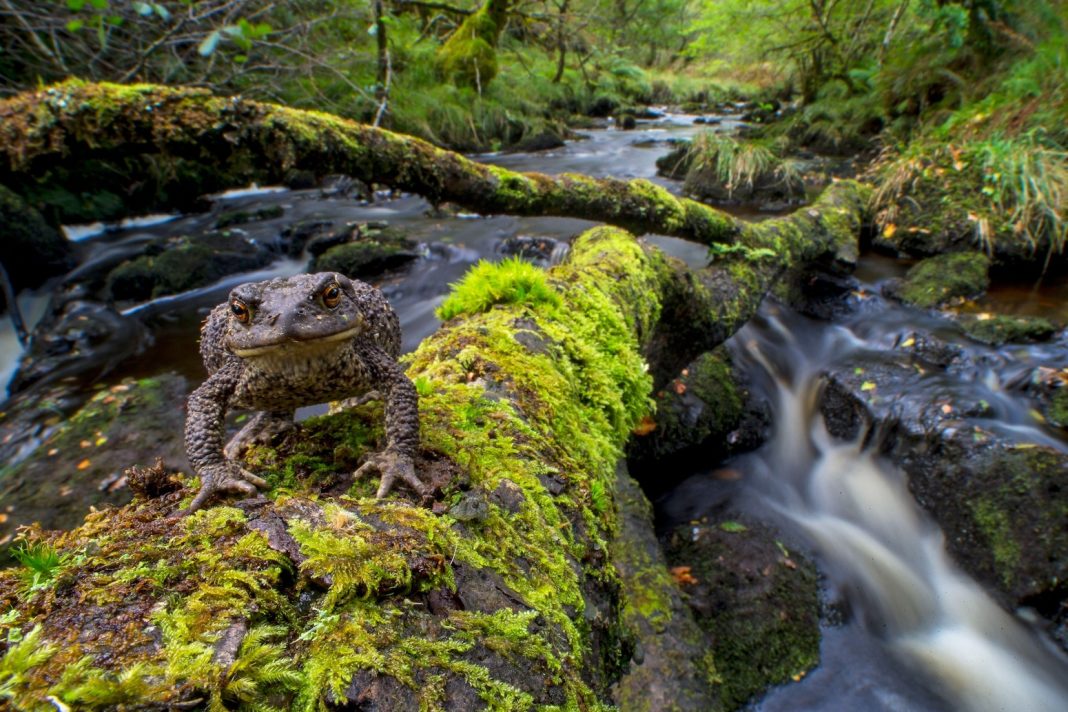The UK will miss the UN’s deadline to publish a new national plan for how it will address nature loss ahead of the COP16 biodiversity summit in Colombia this month, Carbon Brief understands.
At COP15 in 2022, countries agreed to submit new national nature plans – known as “national biodiversity strategies and action plans”, or NBSAPs – “ahead” of COP16, which will take place in Cali from 21 October to 1 November.
In December 2023 at the COP28 climate summit in Dubai, the UK pledged to publish its nature strategy by May of this year – and even organised a launch event at Wicken Fen nature reserve in Cambridge for that month – before a change of government in Scotland forced a postponement.
The release of the strategy was delayed further by a UK general election in July – and the new Labour government now intends to publish it in January, Carbon Brief understands.
The missed deadline comes after UK foreign secretary David Lammy said that the government would prioritise action against biodiversity loss, describing it as a “more fundamental threat” than terrorism to the nation.
Although it will not now publish a new NBSAP before COP16, the UK did provide the UN with a technical document, known as a national target submission, in place of its strategy.
The UK made this submission at the beginning of August in order to be included in the documents being prepared for COP16, Carbon Brief understands.
Biodiversity in the balance
At COP15 in 2022, nations signed a landmark agreement called the Kunming-Montreal Global Biodiversity Framework (GBF), which aims to halt and reverse nature loss by 2030. It is often described as the “Paris Agreement for nature”.
As part of the agreement, countries agreed to submit new NBSAPs by COP16 in October 2024.
NBSAPs are blueprints for how individual countries plan to tackle biodiversity loss within their borders, as well as ensure they meet the international targets outlined in the GBF.
They are similar to nationally determined contributions (NDCs), plans that outline how individual countries envisage meeting the goals of the Paris Agreement. However, a key difference is that countries are legally obliged to submit NDCs, but not NBSAPs.
Carbon Brief analysis shows that most countries are set to miss the deadline for submitting new NBSAPs. This includes COP16 host Colombia and Azerbaijan, which recently made a formal bid to host COP17 in 2026. (The US is not a signatory to the GBF.)
Missing the target time could be particularly damaging for the UK’s reputation at the negotiations. It campaigned for an ambitious agreement at COP15 and is the oceans lead of the High Ambition Coalition for Nature and People group of nations.
While it will not publish a new NBSAP, the UK did provide the COP16 secretariat with a national target submission. (A number of countries that missed the NBSAP deadline instead submitted new national targets.)
This submission includes information on how the UK will aim to meet the 23 targets outlined in the GBF.
The submission says that the UK will “ensure and enable” the protection of 30% of the UK’s land and seas by 2030, as well as a pledge to restore 500,000 hectares of “wildlife-rich habitat” outside of protected areas by 2042.
In addition, it says the UK will “substantially and progressively” increase financial resources available to developing countries for tackling biodiversity loss, adding that the UK will contribute to “global targets” of mobilising at least $200bn per year by 2030.
The submission also says that the UK will take action to ensure fair and equitable benefit sharing from “digital sequence information” (DSI).
(DSI is a term for how countries share and use genetic information from biological resources, such as for the creation of new drugs and products. It is a major area of disagreement in international negotiations.)
When approached about missing the deadline for producing a new NBSAP ahead of COP16, a spokesperson for the Department for the Department for Environment, Food and Rural Affairs (Defra) referred to the UK’s national target submission, saying:
“Nature and our wildlife underpin everything – the economy, food, health and society. That is why we have submitted the UK’s biodiversity targets to the Convention on Biological Diversity (CBD), aligning us with the Kunming-Montreal Global Biodiversity Framework and committing us to achieve the agreements made at COP15.”
However, Adrian Ramsay, an MP and co-leader of the Green Party of England and Wales, said the government should not be arriving at COP16 “empty handed”, telling Carbon Brief:
“It is extremely disappointing to learn that the UK will fail to submit its national nature strategy ahead of crucial COP16 talks. These should be key priorities for the government, not issues to be kicked into the long grass.”
Meg Randles, global political lead on oceans for the NGO Greenpeace, tells Carbon Brief that it is “concerning” that the UK will not publish a nature strategy ahead of COP16, adding:
“Given how quickly the natural world is disappearing, it’s concerning that the UK government has not been more visible on this issue. As one of the most nature-depleted countries on Earth, it is vital we get our own house in order to bolster the global goal of protecting at least 30% of land and sea by 2030.
“[The UK] must follow up with a full and updated National Biodiversity Strategy and Action Plan and by providing our fair share of funds to deliver it as soon as possible.”
Sharelines from this story


